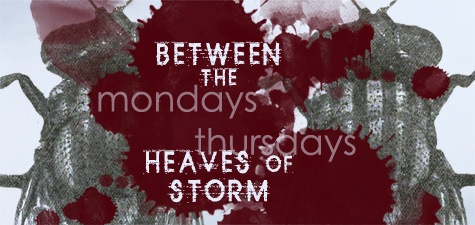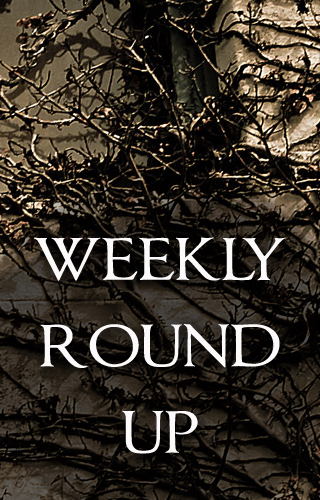Since moving into the old farmhouse that I’m renting, I’ve been rediscovering horror. It’s actually very good timing for my next project. I’ll be beginning to write the last book in the Toil and Trouble Trilogy. If you’re caught up with that series, you know that the last book is essentially the zombie apocalypse.
If you’ve been a fan of mine for a very long time, you might remember Poisonlands. That was the zombie serial that I never wrote. Well, I wrote 2 1/2 episodes of it. Then… something happened. I don’t remember what. But I never finished it. That was in 2009. I’ve been wanting to write the zombie apocalypse for a very long time.
Anyway, I’ve been watching a bunch of zombie movies both to get myself in the mood and because I’ve been getting back into horror lately. And for some reason, I can’t get George Romero’s Day of the Dead out of my head. So if I would write a blog post about why it may be the best zombie movie of all time. (Obligatorily, I’ll let you know that there will be some spoilers. But honestly, it’s a Romero zombie film. If you don’t go into it knowing that most of the characters are going to die and that it’s not going to be a happy ending, then you’ve never seen a Romero zombie film.)
Day of the Dead is probably considered the worst of Romero’s zombie films. Well, of the original trilogy, at any rate. I know that it used to be my least favorite. I watched it once, way back when I first got into zombie movies. All I remembered about it was that it was super depressing, extraordinarily gory, disturbing to the extreme, and poorly acted. I remembered a lot of people yelling at each other. Then a big zombie attack with guts spilling out all over the place.
I wasn’t going to watch it again at all. But I thought maybe I would see something new in it, considering I had originally watched it before I had this revelation.
I can’t stop thinking about this movie. Everything about it gives me chills. I’m not going to deny that it has its faults. For one thing, the Miguel character really doesn’t work for me. It’s one of those classic cases of telling rather than showing. The main protagonist, Sarah, goes on and on at the beginning of the film about how Miguel is losing it, but we mostly have to take her word for it, because she sedates him and then he doesn’t do anything.
The movie is claustrophobic. They are actually filming in an underground old mine, and the whole thing just feels like it’s closing in on you. What I took before as poor acting struck me completely differently this time through. This time I realized that this was a group of characters just inches away from their own breaking points. The yelling and screaming that had seemed over-the-top to me before now seemed evocative of the claustrophobic atmosphere.
All the characters are horrendously flawed. I think when I saw the movie before, I wasn’t a sophisticated enough viewer to recognize this. Instead I saw Captain Rhodes as an over-the-top villain and Sarah as an unlikable protagonist. I was right. They are both those things. But whereas before I thought this was a fault, I now realize it’s pure genius. This is because before I never understood that Romero’s central thesis is that humanity is eating itself alive. So of course there are no likable characters in Day of the Dead.
Inside the compound, the soldiers use brute force to terrorize the scientists. They are seemingly devoid of any morally redeeming qualities. They are violent, crude men. The scientists claim that they are doing work for the betterment of humanity, but it’s become clear that they are petty, cold men and women. Dr. Logan, in particular, has become so detached from basic humanity that he is using dead soldiers to reward zombies in his twisted experiments. So while the scientists are horrified at the blatant violence of the soldiers, the soldiers in turn become horrified when they discover what Dr. Logan is doing. The two classes of people are foils for each other. They light up each other’s weaknesses and highlight each other’s strengths.
And then, of course, you have Bub. He’s the smartest zombie ever. Dr. Logan has been working with him, so that now he can do all kinds of tricks, including shooting a gun. The conceit here is that Romero zombies retain distorted memories of their human lives. That was why they were all drawn to the mall in Dawn of the Dead. Now, I’ve seen reviewers completely miss the point, clearly disgusted because Bub is quite arguably the only sympathetic character in the film. After all, he isn’t responsible for anything that is going on. He cries when he finds the body of Dr. Logan. And he is so pathetic. It is impossible not to feel sorry for him.
Here’s where it gets heavy, folks. All of the human characters in a zombie film have to decide that zombies are not human anymore in order to survive. But, in so doing, they begin to exhibit behavior that ultimately destroys their own fundamental humanity. Some reviewers think that Romero is sympathetic to Dr. Logan. But Dr. Logan has clearly gone completely insane. He might not be out there shooting zombies and having fun doing it, but he treats the zombies like lab rats, and he eventually becomes positively revolting.
This is when it’s important to realize that, as a character in a Romero movie always says, the zombies are us.
The way I see it, Romero is scathingly indicting violence. He sees violence coming from many places. The first kind of violence is instinctual and ignorant, but still harmful. That’s the zombies. The zombies kill because they don’t know any better. It’s tragic. It’s heart wrenching. But there are worse kinds of violence. The humans are violent too. They are violent even though they understand what violence can do.
In no other movie, do I think that the portrayal of people being mutilated by beings that really enjoy mutilating them is rendered so bluntly. It is positively disgusting.
And here’s the funny thing. One of the reasons people like these movies is that they like the gore. And I think what this movie does is throw so much gore in your face that it forces you to really kind of step out of yourself and ask yourself, “Whoa. What is inside me that I want to watch this?”
At any rate, it’s a really dark movie. I just can’t stop thinking about it. It’s so powerful. When I think about these zombie movies are metaphorical level, I feel like they are just so poignant. It’s funny to me that they get kind of shoved to one side, that they aren’t respected as literature, and that they are so misunderstood.
It’s funny, because in my return to the horror genre, I realized that my original enjoyment out of it was a little immature. I wanted to see heroes triumph over monsters. Romero came up with 1950s horror comics, which were extraordinarily moral. People were terrorized and killed, but they deserved it. I guess I realize that a story can still be important on a lot of levels even if no one triumphs.


